Award Recipients 2020
Elizabeth ChurchyaAmerican pianist Elizabeth Churchya is a doctoral candidate at the University of South Carolina in piano performance. Her primary teachers include Joseph Rackers, Lelia Sadlier, and Jeffrey Brown with additional masterclasses or study with Nelita Tru, Marina Lomazov, Dmitry Rachmanov, and Xak Bjerken, among others. Elizabeth also specializes in music history and music theory and has research interests in film music. Originally from Virginia Beach, Virginia, Elizabeth received her Bachelor of Music in Piano Performance from Christopher Newport University. She holds both the Graduate Performer’s Certificate and Master of Music degree in piano performance from the University of South Carolina. In demand as a teacher, adjudicator, and performer, Elizabeth Churchya appears frequently in concert in the Southeast and maintains an active studio of private piano students. Project Description: Elizabeth will be developing an entirely web-based, asynchronous Special Topics in Popular Music: Introduction to Film Music (MUSC 113) course with learning outcomes equivalent to the face-to-face version. MUSC 113 is a course that satisfies the Carolina Core Aesthetic and Interpretive Understanding (AIU) credit. The online version will be available to all future instructors who wish to employ the asynchronous online format, as well as those who wish to modify the curriculum as needed for in-person instruction to inform their own teaching and reuse assignments and assessments created in Blackboard. |
|
Lesley JosephLesley Joseph is a PhD Candidate in the Department of Civil and Environmental Engineering at the University of South Carolina while also working full-time as a consulting engineer for Hazen and Sawyer, a leading water/wastewater engineering firm. As a PhD candidate, Lesley conducts research that investigates the ability of various natural and engineered materials to remove heavy metals for water sources. Prior to pursuing his PhD, Lesley received his B.S. and M.S. in Civil Engineering from the University of South Carolina, along with a M.S.E. in Environmental Engineering from Johns Hopkins University. Once his PhD is complete, he plans to pursue a career in academia and conduct laboratory research on water and wastewater treatment in developing countries. Lesley’s teaching interests include water and wastewater engineering, leadership and management, and professional development. He enjoys teaching in an informal, relaxed setting that consists of more student interaction and less lecture-style content delivery. Project Description: Lesley will be developing a new semester-long required undergraduate course for the Department of Civil and Environmental Engineering, ECIV 307: Professional Development for Civil/Environmental Engineers. This course will meet several objectives for maintaining the program’s accreditation with the Accreditation Board for Engineering and Technology (ABET). The course and its resources will help undergraduates with a broader understanding of their future roles as civil engineers, better prepare them to become working professionals, and provide basic instruction in leadership and management as civil engineers via student learning through cooperative and active learning exercises and experiences. Due to the interdisciplinary nature of engineering, the resources developed may be used to teach professional development to a broad range of engineering and science degree programs. |
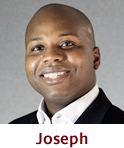 |
Annie KlyceAnnie came to USC from Appalachian State University where she earned her B.S. in Geology. Her PhD will be geology, with a focus in geoscience education. Annie’s research involves working to understand how training spatial skills (ability to read a topographic map, or mentally rotate an object) impacts how well a student performs and how confident they feel in their science classes. Her second project will strive to determine what courses are most commonly required for a Geological Sciences degree at institutions across the U.S. While working on her PhD here at USC, Annie is the Geology Faculty-Student Representative in the Graduate Organization of the Earth, Ocean and Environment and a Graduate Teaching Assistant. In the future, she hopes to be a Professor or work in informal education. Having been involved in teaching for the last four years, she absolutely loves it and is excited to dedicate her future to teaching people about the Earth, taking them into the field and increasing opportunities for those who are interested in joining science fields. Project Description: Annie’s grant project will develop activities and materials that explicitly teach spatial skills to students enrolled in GEOL 101 – Introduction to the Earth, via short homework assignments, online modules, and additional lab components. Research has shown that improved spatial skills can increase persistence and success in STEM fields, yet most geoscience courses do not incorporate direct training in these vital skills and instead assume that they will develop naturally over time. Because spatial training is not domain-specific, these activities could be implemented in other fields that require the development of spatial skills such as architecture, engineering, and others. |
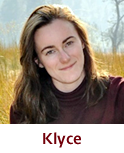 |
Nik LampeNik Lampe is pursuing a doctoral degree in Sociology and a graduate certificate in Women’s and Gender Studies at the University of South Carolina. Their teaching and research both focus on (1) sex and gender affirmation in health care settings, (2) social causes of and responses to health inequalities, and (3) applied research opportunities with programs that promote health equity and patient-centered care. Nik believes students learn best by actively practicing skills and engaging personal biography. After graduation, Nik aims to serve minority populations through community-based medical sociology research and practice at a Research 1 university. Project Description: Nik’s project will be to develop and enhance course concept learning, application, and peer-to-peer engagement for the WGST 300 / SOCY 301 Sex and Gender course by using the popular social media app, TikTok, as a vehicle for video-based peer-to-peer experiential learning. Class activities and assignments will be developed that prompt student viewing and reflecting on videos relating to course concepts, discussions, and development of visual materials to support course concepts and theories. Funding will also support development of a step-by-step resource guide for instructors to adapt this engaging online learning tool for use across a broad and diverse cross-section of courses. |
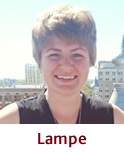 |
Dan LuoDan Luo is currently a Ph.D. candidate in Comparative Literature in the Department of Languages, Literatures, and Cultures. She has been teaching Chinese for seven years, and the most wonderful classroom experiences she has had are the three years with USC students. Her academic interests include cultural studies, film studies, women’s and gender studies, second language acquisition, and cross-cultural communication. As a scholar in modern Chinese literature, she explores in her most recent project the historical, cultural, and gendered aspects of Contemporary Chines e Science Fiction. As a passionate Chinese language teacher, she aims to integrate diverse cultural experiences with L2 learning. She also holds a M.A degree of Teaching Chinese to Speakers of Other languages (TESOL) from Beijing Language and Culture University. She is devoted to integrating the science of language and the culture of language in her classrooms. Project Description: Dan, with assistance from Cheng Xiao, plans to develop culture-based online modules for CHIN 321: Advanced Intermediate Mandarin Chinese I. Currently, cultural content is limited to a very basic introduction at the end of chapters as supplement readings. This project will maximize the role of culture in Second Language Acquisition by exposing learners to content illustrating cultural values, engaging them with analysis of authentic materials, and scaffolding assessments that enrich the understanding of important values and awareness. The online module materials and resources developed for this course will be developed at four proficiency levels and produced as a package, allowing it to be highly flexible and easily adapted to any level of Chinese class. Other language course series will be able to model cultural content assessments on the materials developed here. |
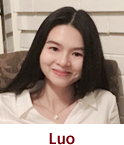 |
Gareth Rees-WhiteGareth Rees-White is an international student from the U.K. who is entering the fifth year of his PhD in Composition and Rhetoric, where he studies opportunities to create a reciprocal Trans-Atlantic education partnership. He has just finished two years as Assistant Director for English 102, where he co-edited the 2019 and 2020 Carolina Rhetoric. He has a BA from the University of East Anglia, and an MA from California Polytechnic State University, San Luis Obispo, and is looking forward to returning to the U.K. when he completes his PhD, where he hopes to help kick-start more advanced writing education. Project Description: Gareth will be developing a Blended version of English 102: Rhetoric and Composition, a course taken by every undergraduate student. The experience of rapidly shifting to remote teaching in Spring 2020 illuminated the level of adaptability of this course to an online environment and where improvements needed to be made. The final envisioned product will be a fully realized syllabus for the course that adapts existing course materials but also is specifically set up to promote online-focused work, while supporting the weekly in-class meetings allowing student-instructor interaction and feedback. |
 |
Shaoshuang WenShaoshuang is a Ph.D. student in the Department of Political Science at the University of South Carolina. His research encompasses topics in foreign policy, international political economy (IPE), armed conflict, and international organizations. His particular research focus is on the determinants of successful economic sanctions, with additional interests in applied statistics and methodology. His teaching interests include international relations, IPE, and international organizations. Project Description: Shaoshuang’s project involves the Bookdown package, an open-source R package that facilitates content-delivery projects such as books, long-form articles, ebooks, lecture content, and other resources via support for a wide range of computer languages, output formats, and publishing directly to the website. Having already developed and implemented a Bookdown project in his course, POLI 330: International Organization, Shaoshuang will be developing a similar supplemental learning resource for POLI 433: Economic Aspects of International Politics, to support students moving online this fall. The final envisioned product will be an integrated website of free, comprehensive, and cross-disciplinary learning resources that can be applicable to a broader audience of political science major students. It is also capable of being incorporated into cross-disciplinary courses via the HTML format of Bookdown. |
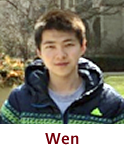 |
Amber Wilson and Philip BerryAmber Wilson Amber Wilson is a doctoral candidate in the Department of Criminology and Criminal Justice. She studies race, gender, and corrections, specifically focusing on how the intersections of race and gender may frame how probation and parole officers experience and engage in professional decision-making. She worked in the field as a community corrections officer after having completed her Bachelor’s and Master’s degrees at Georgia College & State University in Milledgeville, Georgia. Amber enjoys sharing her research interests and professional experience with students in her corrections courses. Philip Berry Philip Berry is a 2nd year doctoral student in the Department of Criminology and Criminal Justice. He graduated with a Bachelor’s degree from Lebanon Valley College in 2017 and a Master’s degree from Radford University in 2019. Philip’s research interests include the spatio-temporal evaluation of crime, organizational legitimacy within police departments, and quantitative methods. Philip is a member of the American Society of Criminology, the International Association of Crime Analysts, the American Sociological Society, and the Academy of Criminal Justice Sciences where he is the Policing Section’s current Executive Board Student Representative. Here at USC, Philip is a member of the Center for Teaching Excellence’s Future Faculty Program, a graduate of the Center for Teaching Excellence’s ‘Short Course on Teaching Online for Graduate Students’, and the Vice President of the Criminology and Criminal Justice Graduate Student Association. Upon graduation, Philip plans to pursue a career in academia and continue teaching eager criminal justice students. Project Description: Amber Wilson and Philip Berry’s proposed project incorporates into the CRJU 312 Corrections course an opportunity for experiential learning through gameplay, similar to Hasbro’s “The Game of Life”, where students will be able to experience returning citizens’ reentry struggles after leaving prison. They are developing an interactive online module in which various obstacles and promotions are introduced that hinder or assist the citizen’s successful reentry and more fully explore the specific obstacles that returning citizens experience. The module design itself will be applicable to multiple disciplines and course levels in which an interactive, experiential learning approach would benefit students by encouraging them to utilize critical thinking skills in conjunction with developing empathy for their respective clients. |
 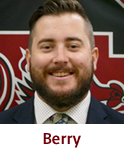 |
Cheng XiaoCheng Xiao is a second-year PhD student in the Linguistics Program at the University of South Carolina. She is interested in language acquisition, speech perception and production, and language disorders. She received a B.A. in Chinese Language and Literature, a B.S. in Finance, and a M.A. in Linguistics and Applied Linguistics from Wuhan University. She has taught a second language in both China and the United States. As an instructor, she is interested in teaching Mandarin Chinese at the undergraduate level with a focus on prosodic-enhanced speech learning. Project Description: Cheng, with assistance from Dan Luo, will be developing Chinese prosodic-enhanced modules for beginner-level students in CHIN 121: Elementary Mandarin Chinese using the flipped classroom approach. Chinese is considered to be one of the most difficult foreign languages to learn, and it is daunting for beginners to learn in one semester the characters and phonologic systems of Chinese. Cheng intends to develop prosodic-enhanced (poetry rhythm and sounds) language learning modules, as prosody is an important cue in understanding both the written and spoken language. These modules will be developed for student viewing and practice prior to class, with concomitant production of technologically mediated assignments presented by students. This module will then be expanded to all four language proficiency levels. Because every language has its prosodic patterns, such prosodic-enhanced modular pedagogy can apply to other foreign language classrooms as well. |
 |

